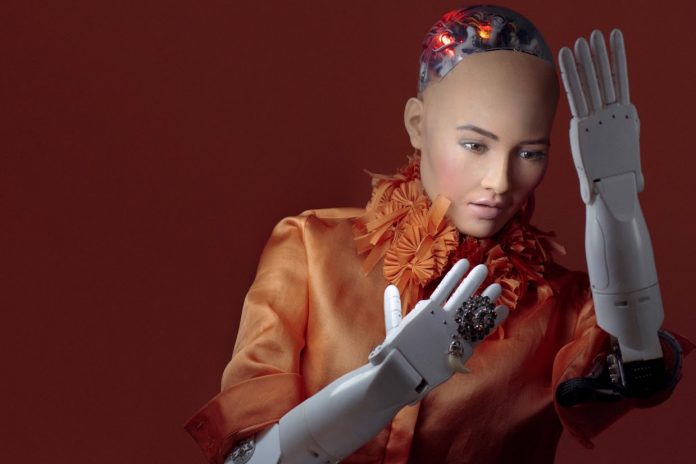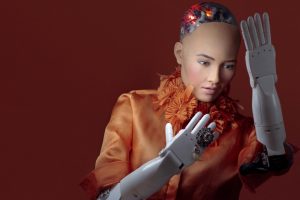

Sophia the Robot can speak, learn, and express emotion just like DePauw students.
Sophia, the world’s first artificial intelligence fueled android, is coming to DePauw University today at 7 p.m., as a part of the Timothy and Sharon Ubben Lecture Series. The Ubben Lecture Series is made possible by DePauw alumni and philanthropists Timothy and Sharon Ubben. Sophia, along with her creator David Hanson, will be discussing their opinions on the future of technology and artificial intelligence in Kresge Auditorium.
Sophia is the latest robot by Hanson Robotics, a Hong Kong based company. Ken Owen, special adviser to President Mark McCoy, was contacted by an agent of Sophia and Hanson’s to facilitate a program involving Sophia on DePauw’s campus.
Students on campus are curious about the future of artificial intelligence and the insights Sophia will offer. Owen said the main goal of the event is for students to be exposed to the potential of technology and artificial intelligence.
Sophomore computer science major Julia Otteson said she is “curious to see Sophia up close and how her facial expressions look in person.” In addition to her 62 facial expressions and resemblance to actress Audrey Hepburn, students generally want to know more about what inspired her creation and how she processes data.
As the first “social robot,” as Hanson calls her, Sophia is able to process and react to emotional data. She is also the first robot to become a citizen of a country, as she was granted Saudi Arabian citizenship in October 2017.
Sophomore computer science major LizaMarie Jimenez-Ojeda questioned the future extent of Sophia’s intelligence.
“How intelligent can Sophia become?” she asked.
Owen hopes that students will be able to see how the world is changing at a fast pace, especially the world that students will inherit. “You will need a level of intellectual dexterity in order to succeed,” Owen said.
Similar to Otteson, students are curious about artificial intelligence, specifically how artificial intelligence will become accessible to the average person. Some students are doubtful that artificial intelligence will become a threat. Instead, students such as Jimenez-Ojeda believe artificial intelligence will evolve and influence technology while interacting with society.
The doors will open at 6:30 p.m. to students and 6:45 p.m. to the general public.


